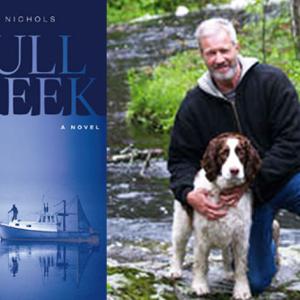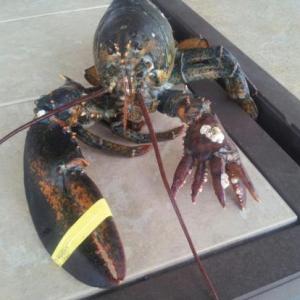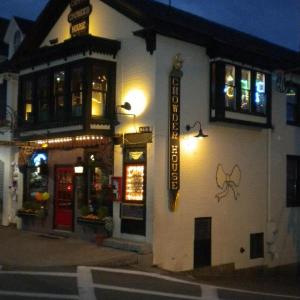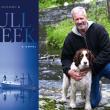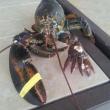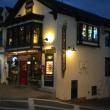Jim Nichols on the challenges of a lobsterman’s life
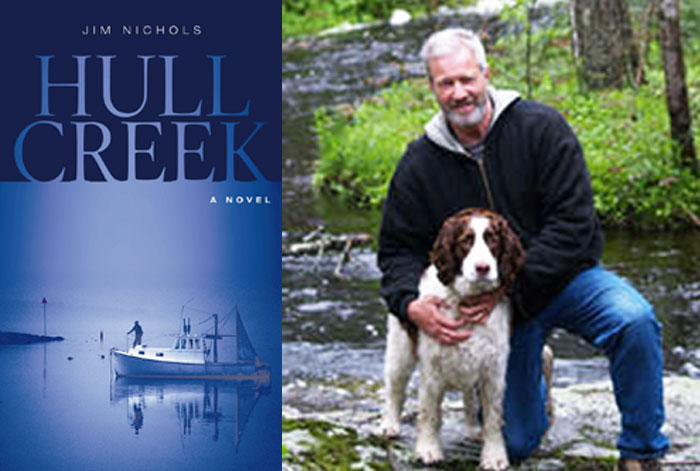 Author Jim Nichols with his dog Brady in Waldoboro, Maine. (Photos courtesy Jim Nichols)
Author Jim Nichols with his dog Brady in Waldoboro, Maine. (Photos courtesy Jim Nichols)
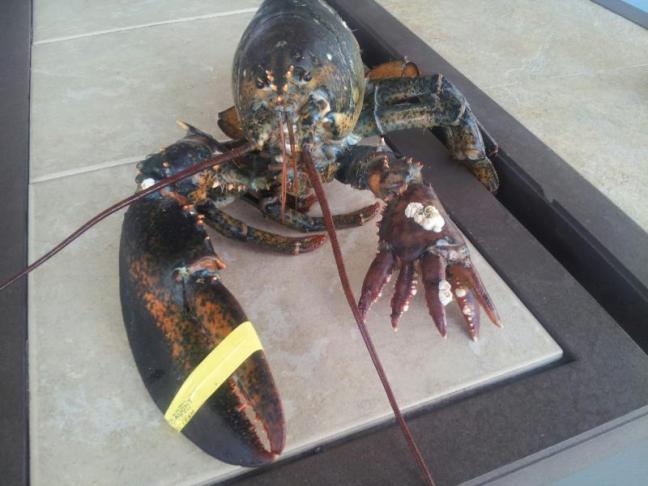 The five-claw crusher claw lobster that’s been making Maine headlines. See what lobstermen have to deal with?
The five-claw crusher claw lobster that’s been making Maine headlines. See what lobstermen have to deal with?
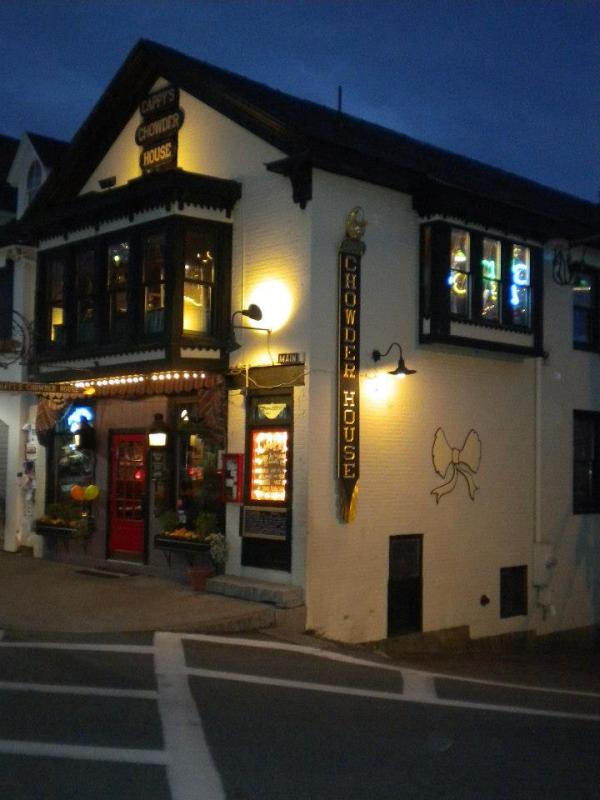 The old unrenovated Cappy’s was the inspiration behind Captain Cobb’s bar. (Courtesy Cappy’s Chowder House)
The old unrenovated Cappy’s was the inspiration behind Captain Cobb’s bar. (Courtesy Cappy’s Chowder House)
 Bayview Street is the inspiration for Seaview Street in the book. (Courtesy Trulia.com)
Bayview Street is the inspiration for Seaview Street in the book. (Courtesy Trulia.com)
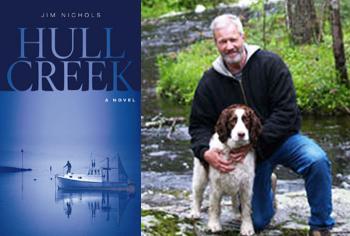 Author Jim Nichols with his dog Brady in Waldoboro, Maine. (Photos courtesy Jim Nichols)
Author Jim Nichols with his dog Brady in Waldoboro, Maine. (Photos courtesy Jim Nichols)
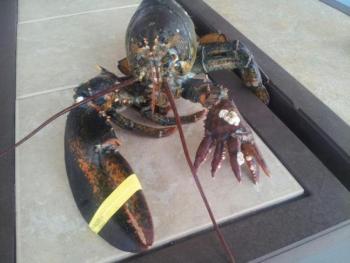 The five-claw crusher claw lobster that’s been making Maine headlines. See what lobstermen have to deal with?
The five-claw crusher claw lobster that’s been making Maine headlines. See what lobstermen have to deal with?
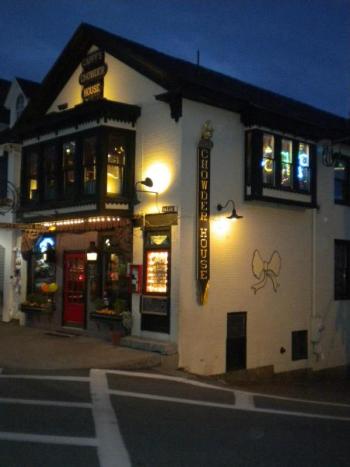 The old unrenovated Cappy’s was the inspiration behind Captain Cobb’s bar. (Courtesy Cappy’s Chowder House)
The old unrenovated Cappy’s was the inspiration behind Captain Cobb’s bar. (Courtesy Cappy’s Chowder House)
 Bayview Street is the inspiration for Seaview Street in the book. (Courtesy Trulia.com)
Bayview Street is the inspiration for Seaview Street in the book. (Courtesy Trulia.com)
WARREN — For Lobsterpalooza this week, Sept. 9-14 across the Penobscot Bay Region, we are featuring local resident Jim Nichols, author of Hull Creek, the story of a lobsterman’s challenges on the coast of Maine. Nichols lives in Warren with his wife, Anne. His short stories and other work has appeared in Esquire, Narrative, Portland Monthly, American Fiction, The Clackamas Review, Night Train and Zoetrope ASE. His collection, Slow Monkey and Other Stories (Carnegie Mellon Press, 2003), preceded his first novel Hull Creek (DownEast Books, 2011) which was runner-up for the Maine Book Award for fiction in 2012 and a Silver Medal IPPY award winner.
A summary of Hull Creek follows:
After the death of his parents, Troy Hull decides to leave college and take on his family's traditional lobster fishing life. But after a few good years, he finds himself threatened with the loss of that life, the result of some bad choices on his part and the changing nature of his hometown. Troy's best friend, also a lobster fisherman, has found his own shady ways to deal with a similar situation, and now Troy must decide whether to follow his pal's outlaw path to solvency or let the straight-and-narrow take him from his beloved home forever. Throw in a run-away wife, a drug deal gone bad, a wicked city woman, and a wild melee where a big-shot TV host and crew get dunked in the chilly harbor, and you have Hull Creek: a timely and rowdy story of the Maine coast.
We caught up with Nichols to get a sense of where he culled his real-life material from.
Q: Writing a novel about Maine lobstermen is not a venture taken lightly. How did you research your topic and did you have an "in" that would allow you to know some of the inner workings that are not available to the general public?
A: I agree, it's not to be taken lightly! I tried hard not to mess it up. I'd been out with friends a time or two, and had gotten a taste of the way things were done that way. I also know lots of island fishermen, because they fly back and forth on Penobscot Air, where I work, so I was able to consult with a couple of long-time practitioners of the trade. They straightened me out where I'd gone astray.
Q: Your setting is based on the fictional coastal Maine town of Pequot (which we can probably guess which town it is after you write: Pequot by the Sea, Rockland by the Smell). What are the advantages of making up a fictionalized town?
A: Well, as you know a real town won't always cooperate by having things in the right places for the purposes of the narrative. A fictional town can be just the way you need it to be!
Q: Your book was published in 2011, at a time when landings for lobstermen were high, but so were fuel and bait prices. (Yet, the average per-pound price was $3.19). Two years later, would you say your characters would be just as challenged by the economic factors of this industry?
A: There seem to be plenty of lobsters, but I think the struggle to get a decent boat price is ongoing. The folks who actually do the hard work always seem to find themselves at the bottom of the money flow.
Q: One of the most interesting things about this series is how the authors have chosen to characterize native Mainers and people from away. How have lobstermen in the area reacted to Troy and his lobstering buddies? And what did your general readers think of Troy's antagonists (e.g. the yachties, McMansion owners and the white collar bankers?)
A: People who grew up around here seemed OK with it. One accused me of somehow looking over his shoulder during some of his more unsavory moments. Another told me he'd grown up with Troy and his pals. I got enough positive feedback that I felt pretty good about the whole thing, like I hadn't let anybody down. They seemed to find some satisfaction in what happened to the swanks, as well. On the other side, I was told by a couple of readers who had moved to the area that I wasn't entirely fair with my portrayal of folks from away. I had to point out that one of the lawyers had come through in the clutch at the end.
Q: It's always fun to guess where you based your fictional places on; for example, can you tell us the inspiration behind these places in your book?
- Thirsty Whale
- Maine-ly Drugs
- Captain Cobbs
- Erky's Wharf
- Seaview Street
- Hull Creek
- Paycot Resort
A: There was a Thirsty Whale Tavern at the old Camden Harbour Inn, and mine was based on that. Maine-ly drugs was a sort of a response to Richard Ford's observation that there seemed to be a lot of folks along Route 1 in Maine who couldn't resist the pun potential of the state's name. Captain Cobb's was something like Cappy's in Camden, Erky's Wharf was just a name I liked. Seaview was similar to Bayview Street in Camden, and Hull Creek was pretty much imaginary. And I think it was the Lord Pequot Inn, wasn't it? Paycot was a corruption of the name Pequot by snooty types.
To see more reviews of Nichols’s book and more information, visit his website www.jimnichols.org
• For archives of Real places in Maine that inspire literary fiction, visit Penobscot Bay Pilot's Pinterest page.
Related links:
• Maine Lobster Council events
Kay Stephens can be reached at news@penbaypilot.com
Event Date
Address
United States

